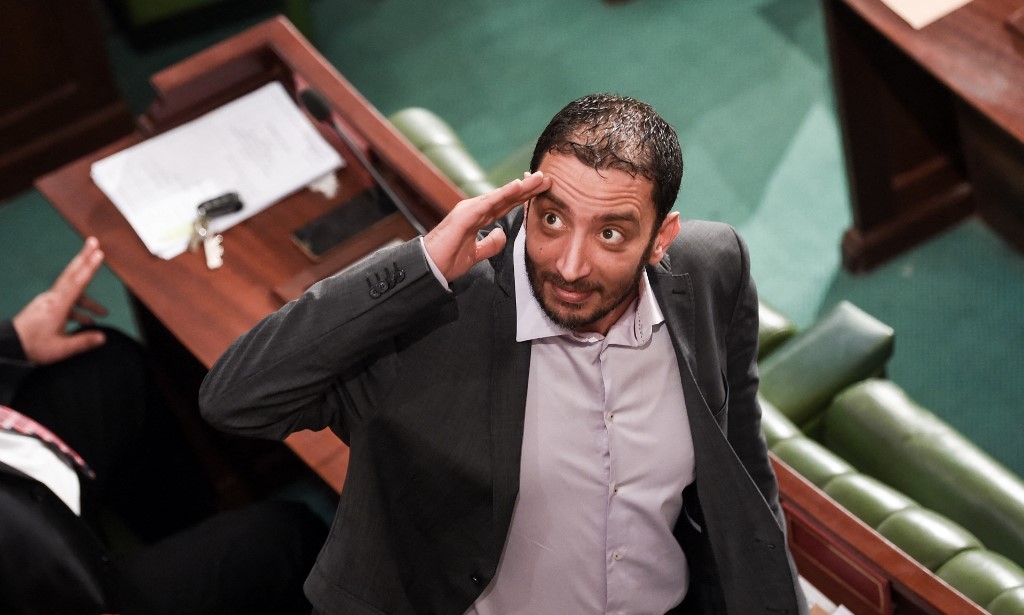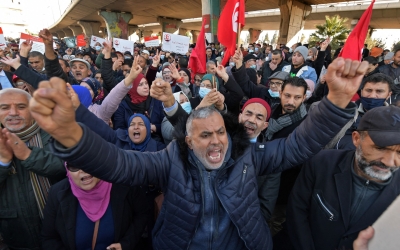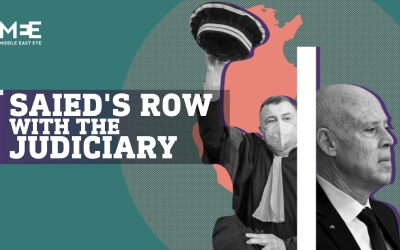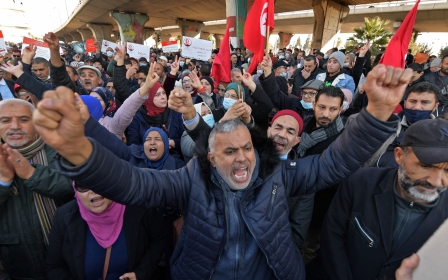Tunisia: Military court sentences MP to prison for insulting president and army

A military court has sentenced Tunisian MP Yassin Ayari in absentia to 10 months in prison for insulting the president and the army after describing Kais Saied's move to freeze parliament in July as a "foreign-backed military coup".
Ayari, who had made the comments on a Facebook post, told Reuters from Paris that Saied was criminalising free speech in Tunisia following Friday's sentencing him.
"It's ridiculous. ... Yesterday Saied said in Brussels that he is not a dictator, and today a military court issues a prison sentence against freedom of expression to a lawmaker," said Ayari.
Ayari was originally arrested at the end of July after Saied lifted parliamentary immunity for lawmakers.
While the arrest came after his "military coup" remarks, a military court said at the time that he had been detained pursuant to a three-month prison sentence passed in late 2018 for criticising the army in comments on Facebook.
He was released in September and subsequently made his way to France.
Friday's prison sentence will reinforce opposition fears that Saied is seeking revenge on his opponents, after he also dissolved the Supreme Judicial Council, the body that guarantees independence of the judiciary
Emergency powers extended
Ayeri's sentencing came on the same day Saied signed a presidential decree extending the country's state of emergency until 31 December 2022, according to a presidential decree in the Official Gazette.
The North African country has been under a state of emergency since 2015 after an attack in which several presidential guards were killed.
Saied had previously extended the state of emergency on 18 January for another month, which was due to end on 20 February.
The emergency powers allow the interior ministry to stop meetings and gatherings, impose curfews, and clamp down on media organisations.
Earlier this month, Saie cemented his grip over the judiciary by issuing a decree that grants him control over the selection and promotion of judges.
His decree to take control of the judiciary established a temporary new council to oversee it with no fixed term.
The new "Temporary Supreme Judicial Council" will be partly appointed by the president and gives him the right to dismiss "any judge failing to do his professional duties" or object to the promotion or nomination of any judges.
Saied will be responsible for proposing judicial reforms, according to the new decree, which also stipulated that judges had no right to go on strike.
Middle East Eye delivers independent and unrivalled coverage and analysis of the Middle East, North Africa and beyond. To learn more about republishing this content and the associated fees, please fill out this form. More about MEE can be found here.






